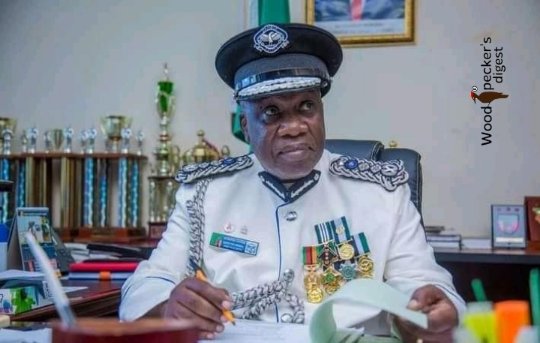
In the phrase of ‘African socialism’ the word ‘African’ does not describe a continent to which a foreign ideology is to be transplanted. It conveys the African roots of a system that is itself African in its characteristics. ‘African socialism’ is a term describing an African political and economic system that is positively African and not being imported from any country or being a blueprint of any foreign ideology!
By Mpandashalo Mwewa | Chief Editor.
Lusaka, Nov. 14 – I have always been a strong advocate for a home bred political system that ought to prioritise development using home grown solutions at the time everywhere you look, we are struggling with foreign designed development programmes which do not reflect our traditional values and principles!
Also Read: Tiananmen Square Protests: Where would China be today had it allowed Western multiparty democracy?
The idea should be to place an emphasis on social democracy, i.e. a popular traditional democratic system which espouses the interests of the Zambian masses and which is against the interests of both the local puppets of the West and international capitalism. This type of democracy would primarily imply the following:
1. While democracy is an integral part of any socio-economic development process, the Zambain masses need a social democracy that places emphasis on concrete political, social, and economic rights, as opposed to a liberal democracy that emphasizes abstract political rights; a democracy that puts as much emphasis on collective rights as it does on individual rights; a democracy which entails decentralization of power to local democratic formations and empowerment of these local governance institutions; a democracy which is as inclusive as possible. The legislative bodies should in addition to national groups, have special representation of mass organisations.
2. The development strategy derived from such a people-driven democratization process should be based on the following values and principles: a popular development strategy in which our people have to be the agents, the means and the end of the developmental process. This implies self-reliance and this has to be practised at all levels, i.e. household, community, constituency, provincial and national.
3. Self-reliance requires confidence. Lack of confidence is a serious problem. It may well be the greatest obstacle to the development of most of Africa and Zambia is not an exception. The humiliation of colonization and slavery before it, virtually destroyed the confidence of Africans including the African leadership. To date, our political leadership believes that Zambians cannot manage the mining sector.
Background…
After gaining independence, the concept of African democracy was a component of the ideology of African nationalism, which in essence reflected our way of life, but equally one that fostered the anti-colonial struggles both at continental level through the Pan Africanist Movement, and at territorial level through the nationalist movements.
In its post-colonial role of building new nations, the ideology of African nationalism including African democracy was guided by two components:
1. African unity and African socialism: At continental level African nationalism was a product of the Pan-Africanist Movement which led to the establishment of the Organization of African Unity (OAU) in 1963, with the aspiration of establishing a United States of Africa. At national level each independent African country looked at ways to achieve national unity through the eradication of colonial legacies that promoted “tribalism” and religionism to weaken the natives. In different countries slogans were developed to propagate and internalise the ideology of national unity. For instance, in Tanzania the common slogan was “Freedom and Unity”, in Zambia it was “One Zambia One Nation”, and in Kenya it was “Harambee”.
2. The second component of African nationalism was the ideology of African socialism which was developed in a number of East and Central African countries such as Tanzania, Kenya, Uganda and Zambia. In Tanzania the ideology was developed in the form of “Ujamaa Socialism”, i.e. African familihood, as propounded in Nyerere’s document of 1962 “Ujamaa: The Basis of African Socialism!” and put into practice through the Arusha Declaration in 1967. In Kenya, African socialism was expounded through “Sessional Paper No. 10” whereas in Uganda it took the form of the “Common Man’s Charter”. In Zambia, you recall that the ideology of African socialism was developed in the philosophy of “Humanism”.
The ideology of African socialism had three important roles to play which would still apply today:
1. The primary role was intended to eradicate colonial relations of oppression and exploitation. It was on the basis of the anti-colonial role that the ideology appealed to the traditional African way of life which was believed to be free of exploitation and oppression due to traditional relations of familihood and brotherhood. In the phrase of ‘African socialism’ the word ‘African’ is not introduced to describe a continent to which a foreign ideology is to be transplanted. It meant to convey the African roots of a system that is itself African in its characteristics. ‘African socialism’ is a term describing an African political and economic system that is positively African and not being imported from any country or being a blueprint of any foreign ideology.
2. The second role of African socialism was to be a tool for fighting foreign ideologies, both bourgeois and communist. In essence African socialism was a rejection of both European capitalism and European socialism. In Zambia where African socialism was based on the philosophy of humanism, the concept of African socialism was characterised by three principles of traditional African societies:
a. firstly, in Zambian traditional communities, each group was self-contained and organised itself to meet the basic needs of all its members;
b. secondly, in Zambian traditional communities, each group assumed the responsibilities of providing all the members of the society with the necessities of life, including the disabled, slow and inept members; and,
c. thirdly, Zambian traditional communities were inclusive in the sense that they involved a web of mutual relationships and responsibility which spread over all members of the society.
Our founding President, Dr. Kenneth Kaunda, in 1966 described these principles as an aspect of respect for human dignity which is a legacy of our tradition which should not be lost in the new Zambia as the case may now be.
3. The third role of African socialism was that of being used as an instrument in the struggle to control the national economies of the independent African countries as well as being an instrument to develop these economies. In Tanzania, for instance, African nationalism was implemented through the Arusha Declaration, which carried out the process of nationalising the commanding heights of the economy in 1967. In Zambia, we had the Choma Declaration and we all know what it achieved!
Also Read: They are failing and falling – but here is how we can succeed!
Conclusion…
Asian countries, China and Singapore as striking examples, have economically reached where they have successfully done so, not by moving with a begging bow but by understanding who they are and exploiting their human potential to achieve economic sustenance. Zambia must do away with its dependence syndrome and the first thing we ought to do is to go back to the drawing board. Institutional knowledge is there.
Our people need a governance system that places emphasis on concrete political, social, and economic rights, as opposed to the segregative Western liberal governance system that emphasizes abstract political rights. Can the UPND manage political equity that it preaches? We need a democracy that puts as much emphasis on collective rights as it does on individual rights.
A very important component of African nationalism, as I have demonstrated, was the ideology of African democracy. Like African socialism, the basis of African democracy was the traditional African way of life. Thus it was taken to be different from Western democracy that is based on a multiparty system. The link between African unity, African democracy and a no party system of government, was the belief that a no party democracy is an essential element of national unity. Our understanding of multiparty democracy is hat of enmity.
Thus the ideology of African democracy, when properly understood, can function as an important link between the ideology of African socialism and that of African unity. Therefore, together with the other ideological components of African nationalism, African democracy could have played a vital role in the consolidation of the state ability to manage our natural resources as united nations and, of course, the political position of the post-independence African leadership which is currently in a mess. Who are we?
About Our Advocacy: At Woodpecker’s Digest, we see it as our job to put constant pressure on our leaders until we get answers. Journalism maintains democracy. It is a great tool for progressive social change!
©2023 Woodpecker’s Digest.
Putting news into perspective








